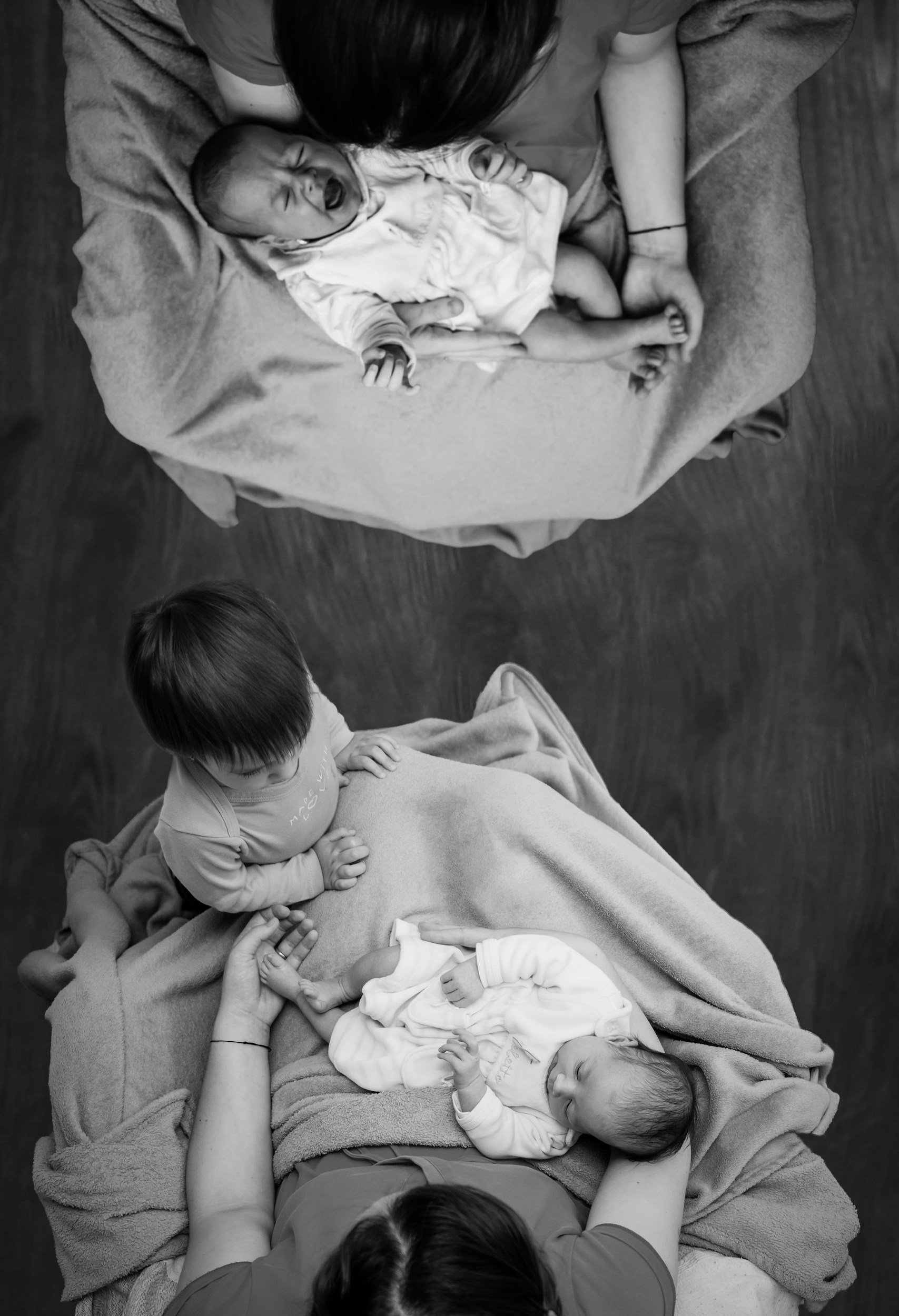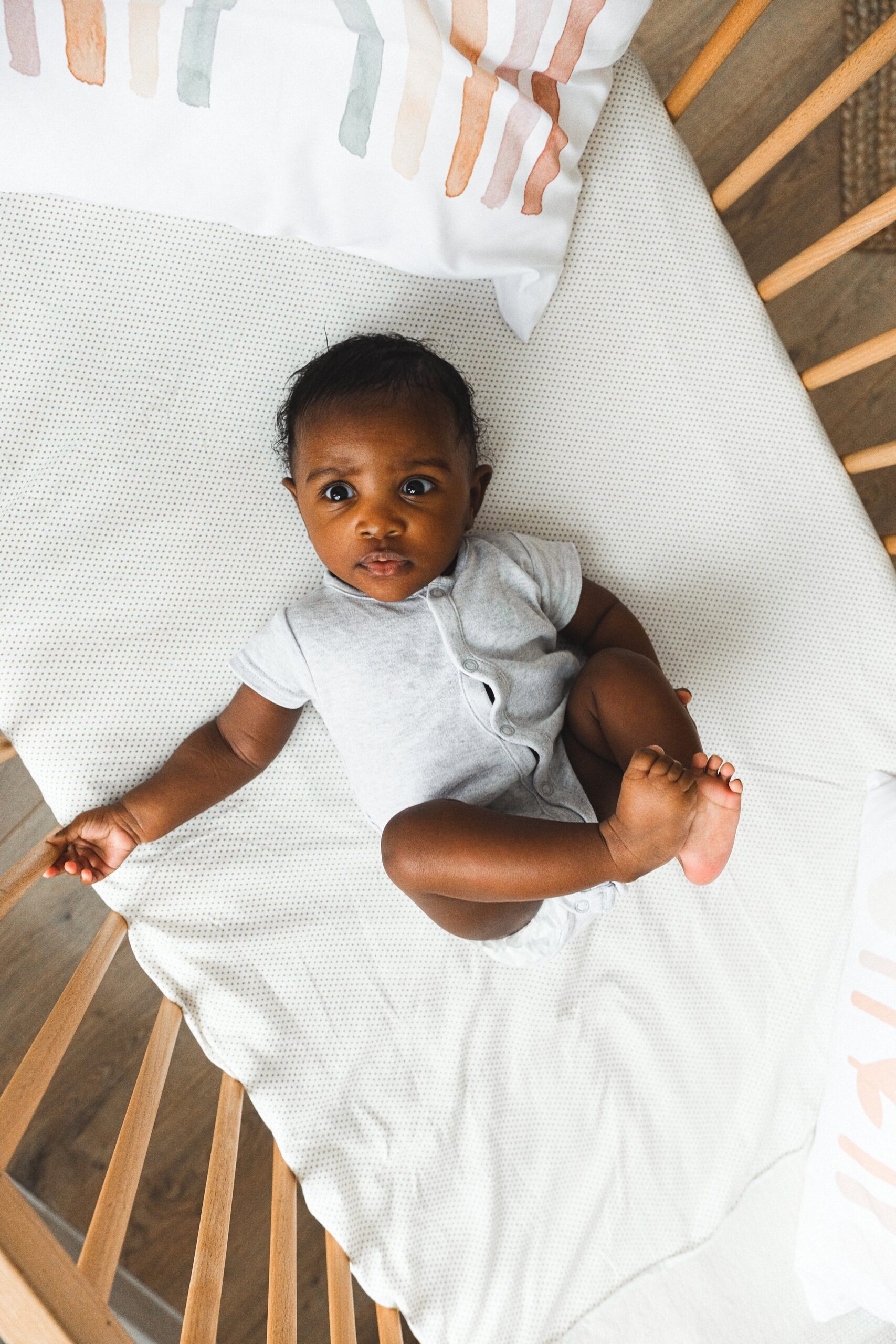I'm Rachael
Mom of 3 & Baby Sleep Expert with Big Sis Energy
& I’VE DONE ALL THE RESEARCH FOR YOU ALREADY.
Better sleep for the entire family
BROWSE COURSES
hey!
early morning wakings and how to help your baby sleep later in the morning
in this post:
Early morning wakings are the biggest pain point of so many parents with young children. It can be so hard to be woken up at the crack of dawn every morning! But what actually counts as an early morning waking? Is there anything we can do about them? How to handle it “in the moment” when your baby wakes up early? Read this blog post to find out everything you need to know about Early Morning Waking or “EMW.”

What’s considered an early morning waking?
It may feel terribly early for us, but for babies and young children, waking up somewhere between 6-7am is actually quite normal. For the purpose of this blog post, I’m defining “early morning waking” as habitually waking up for the day anytime before 6am. If your baby wakes up at 5am once in a while during a period of teething or illness, this is not a true early morning wake problem. Similarly, if your baby wakes up at 4:30 or 5am, feeds and goes back to sleep until 7am, this is more of a “night waking” and I wouldn’t say it’s a true early waking issue. Early morning wakings are when your baby is habitually rising for the day, ready to go, very early in the morning (before 6am).
why do early morning wakes happen and what to try?
Imagine your baby wakes up at 5:30am and won’t fall back asleep no matter what. You’re dying because it feels like the middle of the night to you. But if we think about it, it’s actually an appropriate time to wake up for your baby, especially given that most little ones go to bed quite early and only need about 9-12 hours of overnight sleep. So, if your baby goes to bed at 7pm and only needs 10 hours overnight (very common especially if still napping during the day!) then by 5am they are waking up ready to go having had plenty of sleep! This would be one instance in which adjusting naps or pushing bedtime later could help with early morning wakings. So, early morning wakings often happen because there is too much daytime sleep, a too-early bedtime, or both. Things to try if you suspect this is the issue would be capping the nap(s) and/or pushing bedtime a bit later. You also may consider whether or not it’s time to drop a nap.
Early morning wakings are often due to sleep pressure issues. There simply isn’t enough sleep pressure left to fall back to sleep if they are woken early in the morning because they’ve slept enough overnight. You also may notice things like split nights when there’s a lack of sleep pressure or a daytime sleep imbalance. However, early wakes can also be caused by baby going to bed very overly tired. This can make it tricky to figure out! If you aren’t sure if your baby is overtired or not, check out this blog post.
In addition to sleep pressure and timing, early morning wakings can be caused by environmental or biological factors. Your baby might be woken up by light or sound coming from outside, by a very wet diaper, or because they’re hungry or cold. Here are some things to try if you suspect one of these is the culprit to your little one’s early rising:
-
Consider if it might be time to size up in diapers or try an “overnight” diaper, as leaks can definitely wake your baby up!
-
Be sure baby is warm enough! Our body temp dips to its lowest point all day around 4am. Try adding socks, a onesie t-shirt under the pajamas, or a slightly warmer sleep sack if they feel chilly in the morning. You also may want to try turning up your thermostat an extra degree or two in the early morning hours.
-
Black out the room! Especially in the brighter summer months, sun rise can be quite early. Even the tiniest bit of light coming into the room can be enough to wake some babies up. Consider doubling up and using a blind on the window AND a curtain. The Sleepout Home curtains are some of my favorites because they include a special rod type that blocks light from peeking in the top and sides of the window frame. (code heysleepybaby for 10% off!)
-
Offer a feeding or a dream feed. If your baby wakes up around the same time each morning and wants a feed and actually takes a full feed, you can continue to do this. Especially if baby is sleeping longer stretches at night, they might be truly hungry! The early morning is also when our supply is often highest, so they will be able to get a nice full feeding and might go back to sleep. You could also preemptively “dream feed” around the time they normally wake up, to see if they stay asleep.
-
Don’t offer the first nap too early, it will reinforce the early wake and make it become habitual. Try to get your baby to make it to your ideal first nap time even if you need to push them to stay awake a little longer than they might like. Get outside, do some sensory play, dance, offer snacks, etc. to stretch that wake time!
-
Get baby in natural light closer to when you’d like them to start their day, vs. turning on bright lights or screens when they’re up at 5.
It’s also important to know that our predisposition to sleeping and rising at certain times of the day are largely genetic. This is due to both temperament and our chronotype. Some people (babies included!) are simply wired to be “early birds” and there won’t be much we can do to stop the early morning wakings. In this case, especially if we’ve exhausted all of these tips and tricks and our baby still wakes early but is otherwise thriving, it might be best to let it go. Don’t drive yourself crazy trying to figure out why they happen or how to make them stop. Adjust your day to be sure you are getting as much rest as possible and try to enjoy the sunrises!
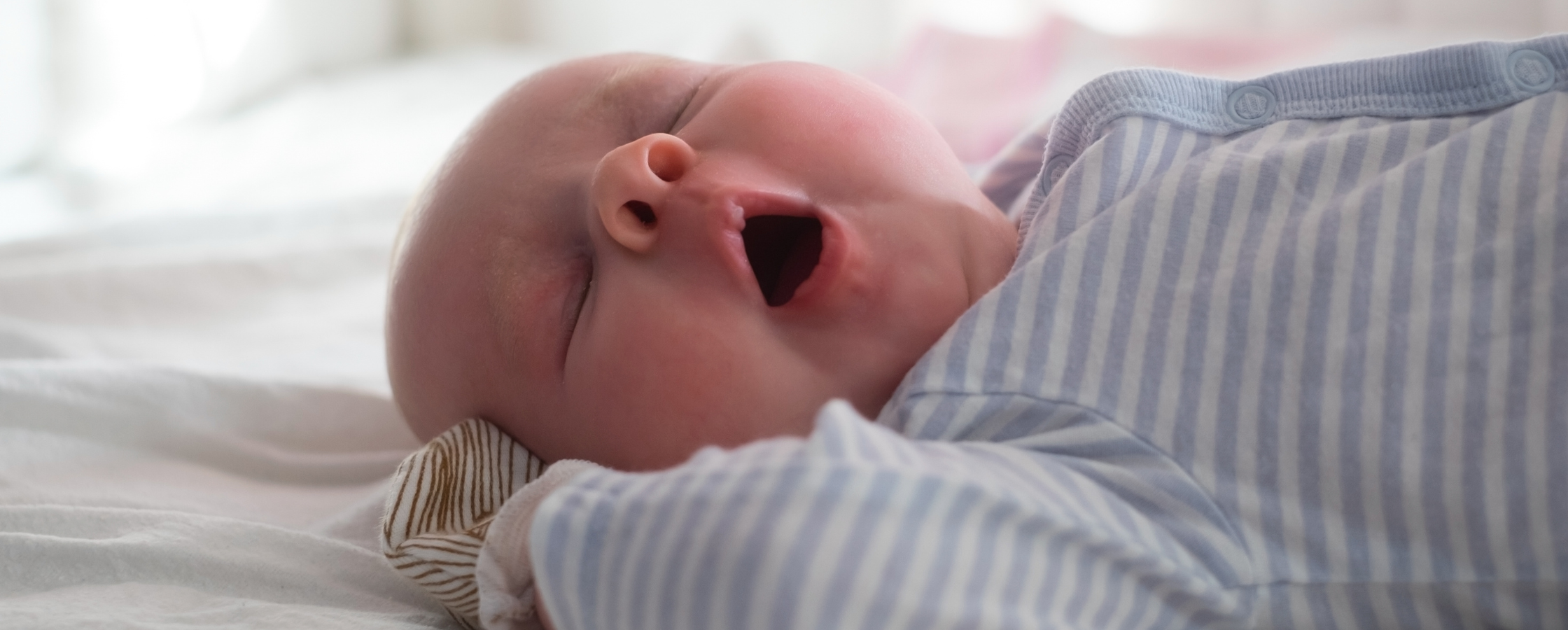
what should you do during an early morning waking?
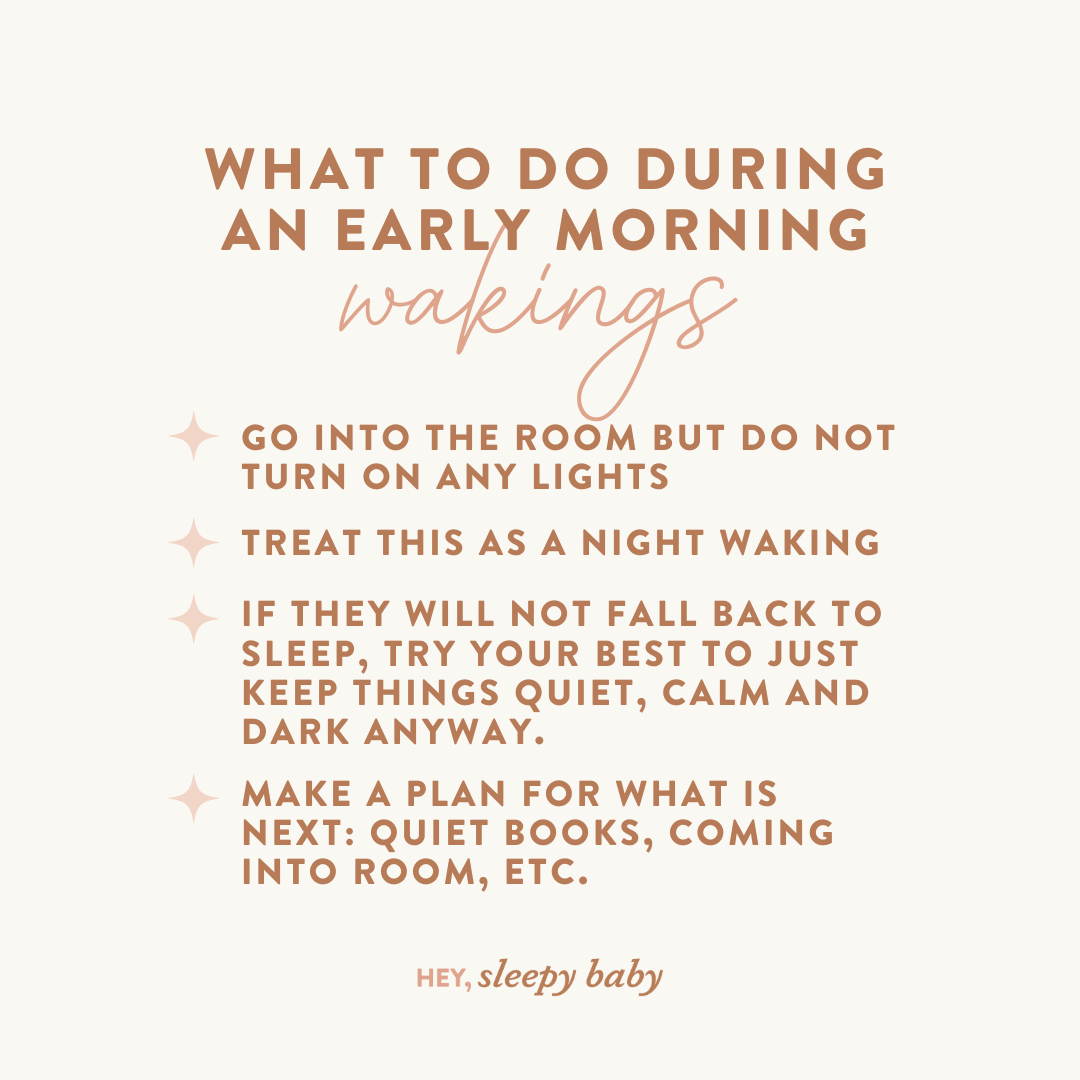
So your baby wakes at 5am and it’s too late to try any of these tips. What to actually DO with your baby!? Lots of “popular” advice for early morning wakings tell parents to ignore their child if they wake early or else they will reinforce the pattern. This is simply not true and I’d never advise you to ignore your upset child. However, if your little one wakes up and you notice they are simply hanging out in their sleep space, it’s ok to leave them! Some babies wake up early and chat with themselves, play with their lovies, sing, etc. If they are chill and content, let them hang out and see if they will fall back to sleep. If they start crying or calling for you, it’s OK to go to them. Here’s what you should do:
-
Go into the room but do not turn on any lights or say big loud hello’s or good morning’s. We want to distinguish that it’s still sleep time.
-
Treat this as a night waking and do what you’d normally do- rub their back, offer a feeding, rock them back to sleep etc.
-
If they will not fall back to sleep, try your best to just keep things quiet, calm and dark anyway. Then when it’s your desired wake time, you can turn on the lights, say a loud enthusiastic “good morning!” and start to distinguish that it is now time to be awake.
-
Some families allow their child to come into their room/ bed during an early morning wake to see if they will settle with some close contact. This is totally fine to do if you want to! Be sure to grab a basket of books to keep by your bed for some quiet time.
Was this helpful? Save it for later!
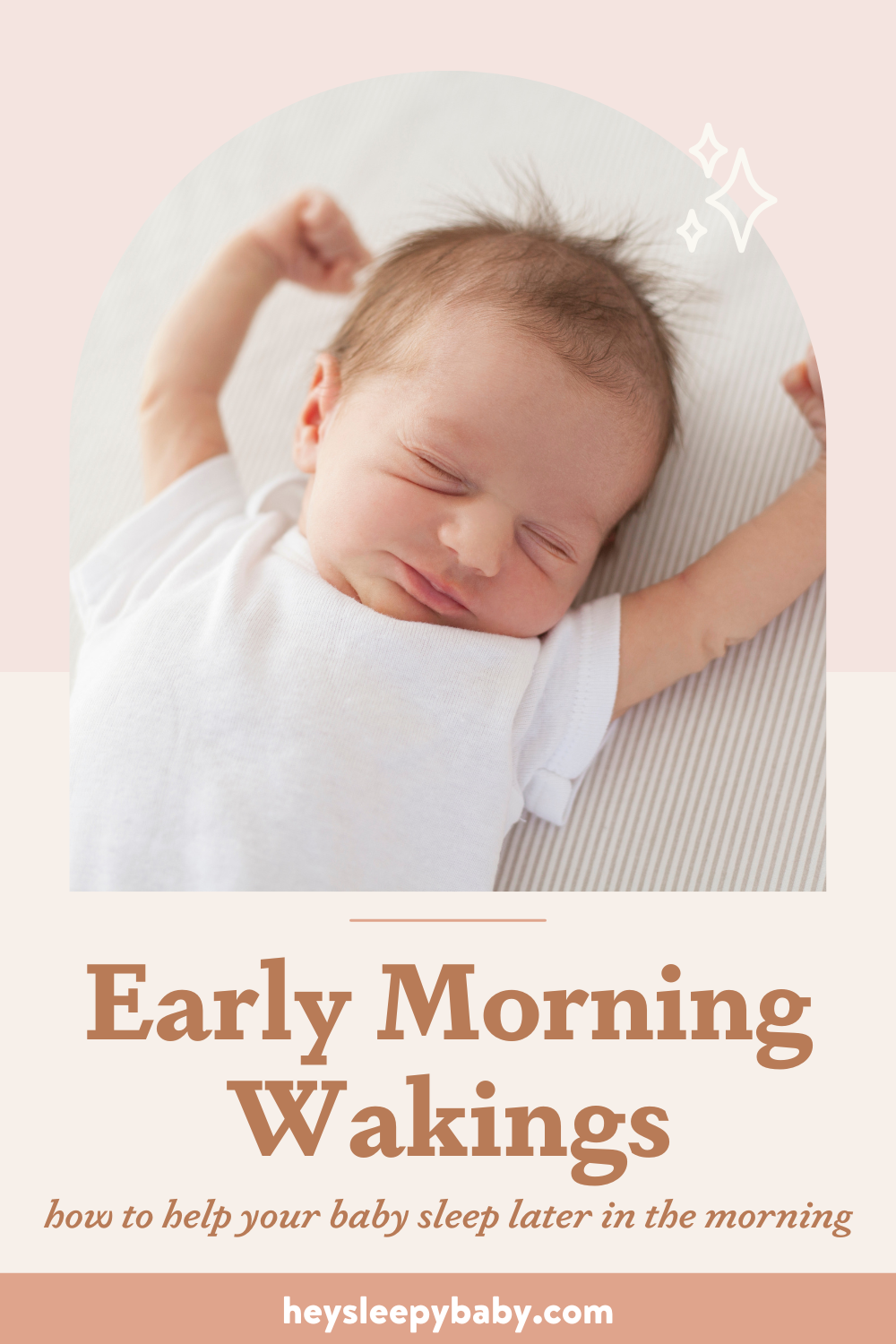
Featured
Responsive sleep tips and support for parents of multiples or twins.
What are floor beds? When to use them? And How to use them?
Before you start changing anything it’s important that you have ruled out any underlying reasons why your infant might have such a strong link to staying latched.
Between the ages of 2-3, many toddlers will experience a heightened level of fear and anxiety. They go through a big developmental leap in their imagination but their ability to distinguish between reality and fantasy doesn’t quite match up! Cue the sudden influx of questions about monsters…
binge reads
We think you'll love these
You deserve to the
baby stage, not just "survive it."
And you DON'T have to sacrifice your values, ignore your instincts, or force yourself to follow a method you don't align with just to get your baby back to sleep.
I’m here to help you create a restful, sustainable sleep environment that honors both your baby’s needs AND your own (without the stress OR the guilt!) because, no, you don’t have to choose between the two.
enjoy!
BABY SLEEP COURSES →
BABY SLEEP CONSULTS →
Wish you could help your baby sleep better without resorting to sleep training? Download my FREE guide to a good night’s sleep and learn 8 simple, science-backed tips for supporting your child’s needs.
Traditional sleep training methods don’t have to be your solution to better sleep.
SLEEP TRAINING ISN’T THE ONLY WAY TO GET GOOD SLEEP
Hey, I'm Rachael and Hey, Sleepy Baby is for parents who want to get their nights back, without sleep training their babies.
NO ONE TOLD US POD
explorING the untold truths of parenting
